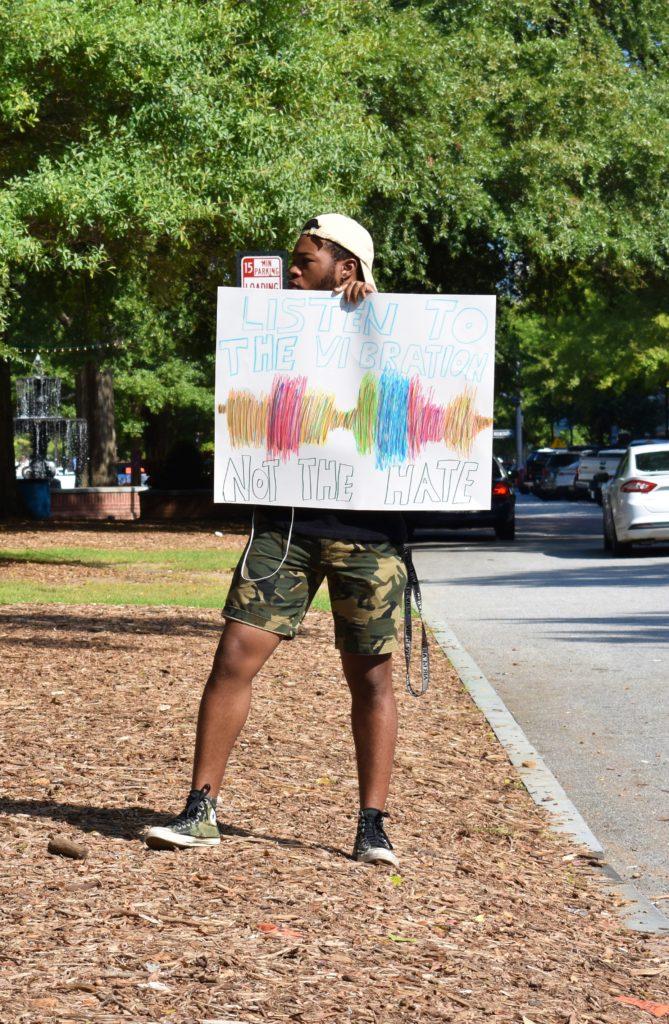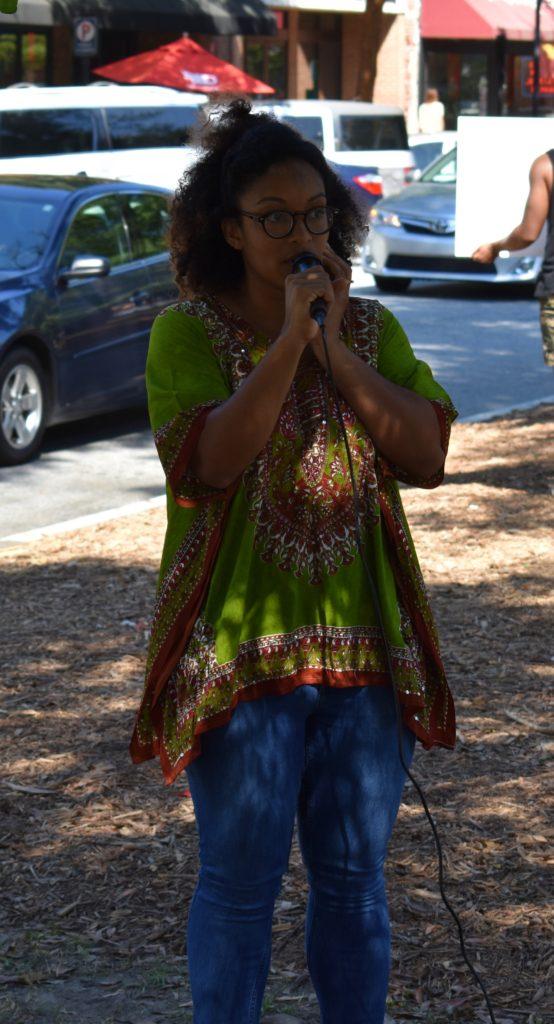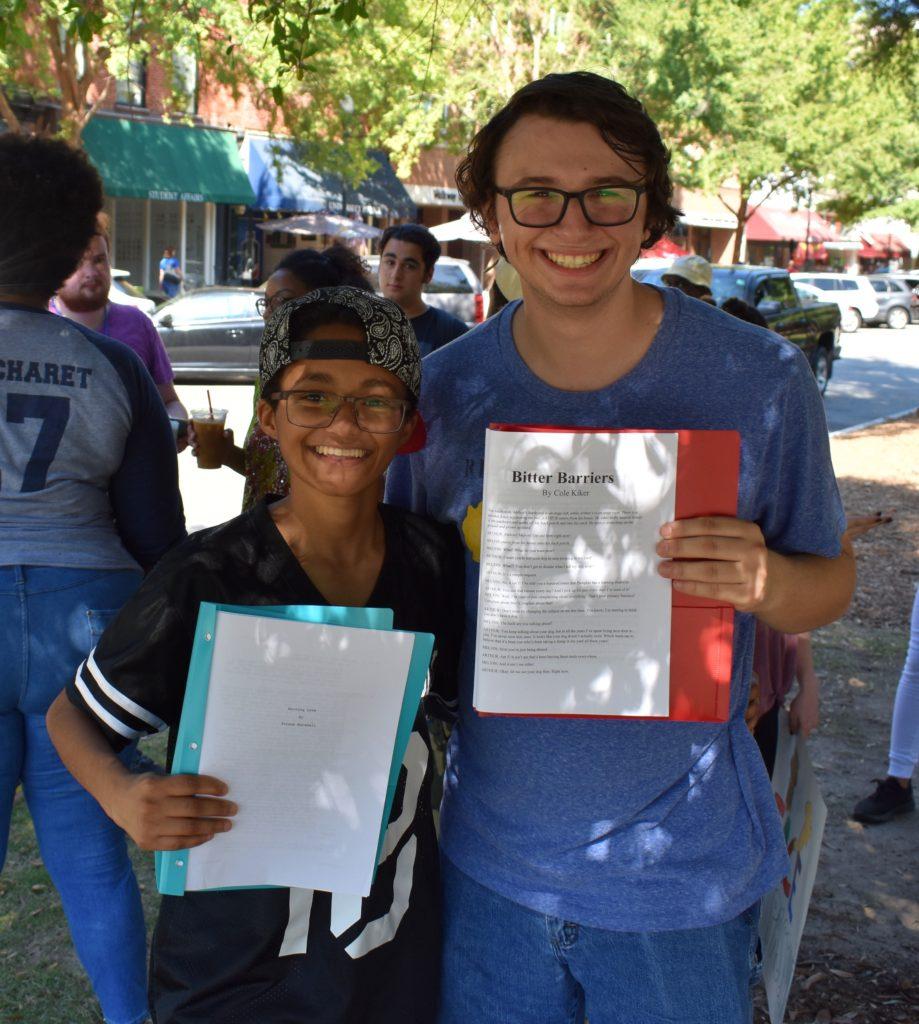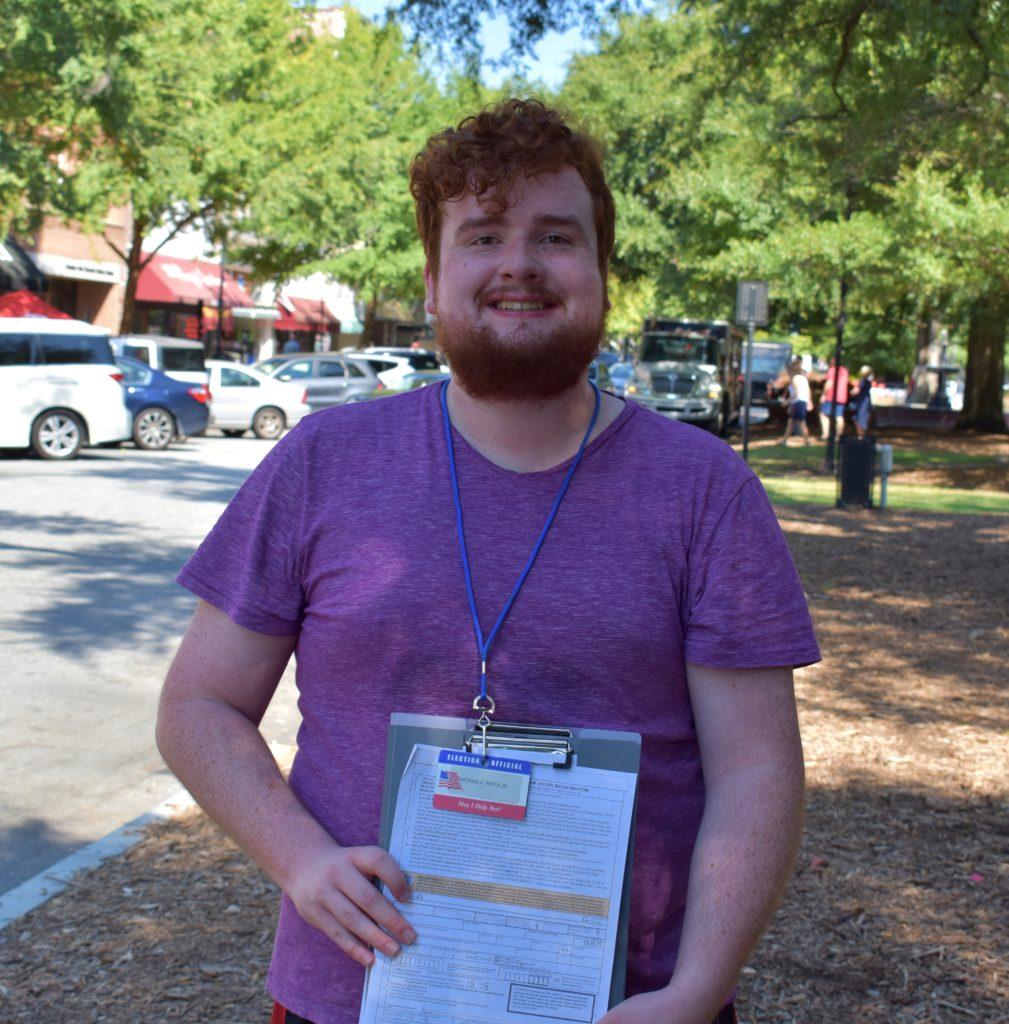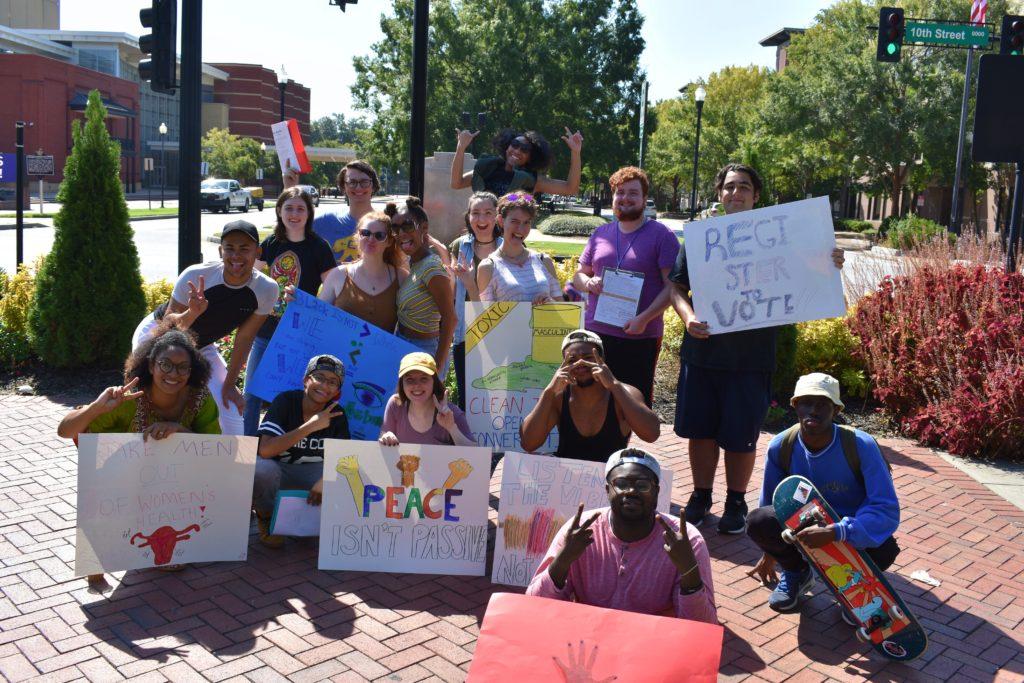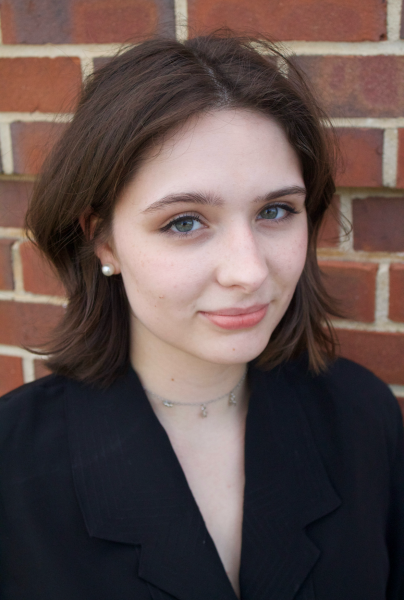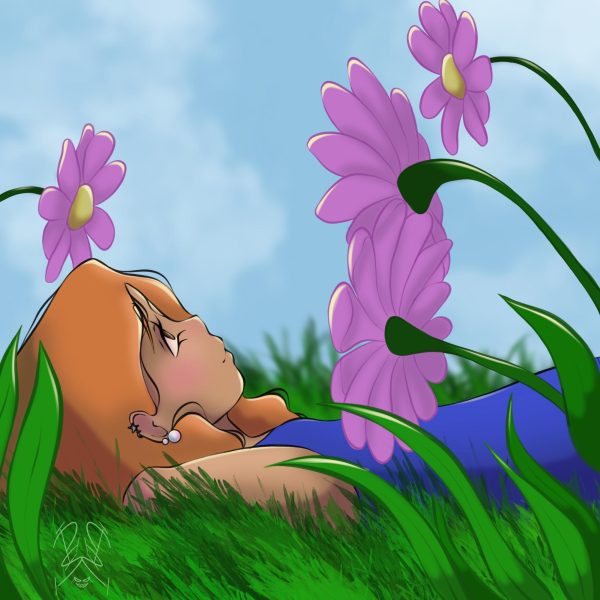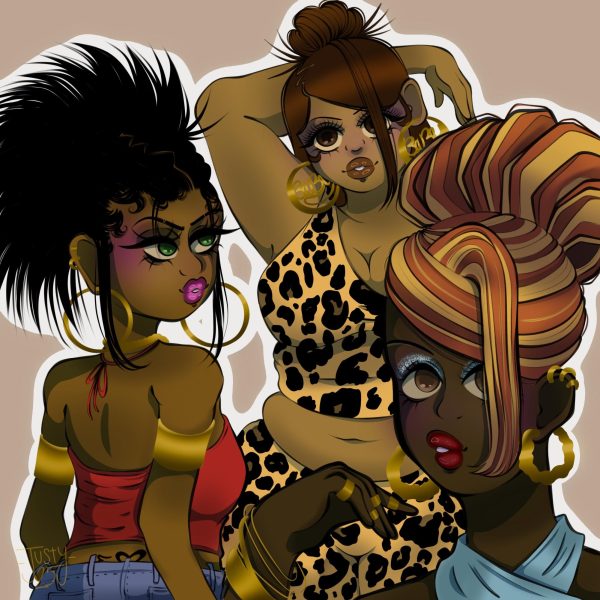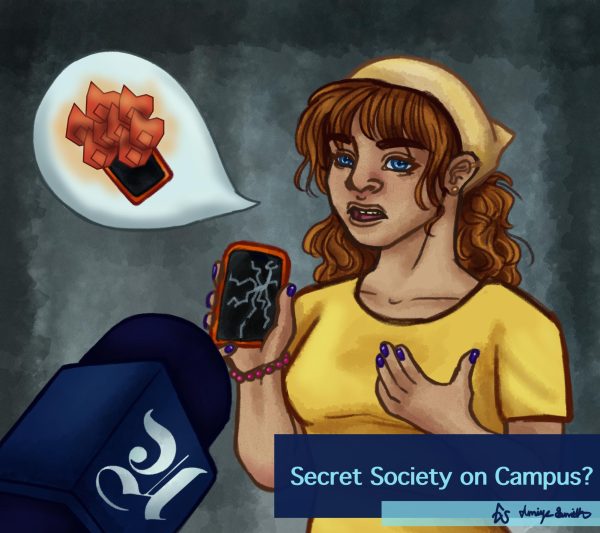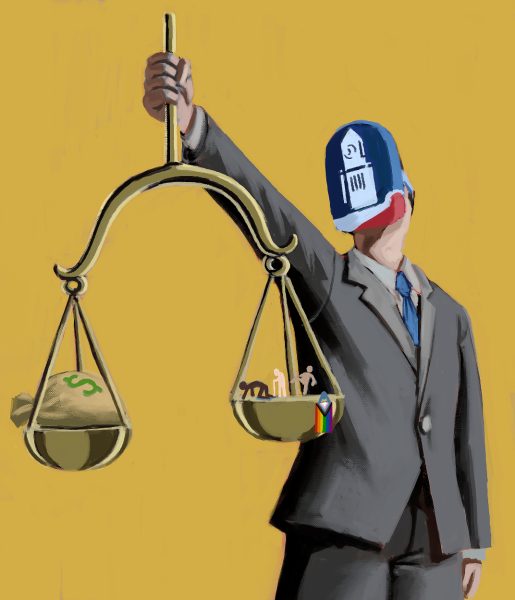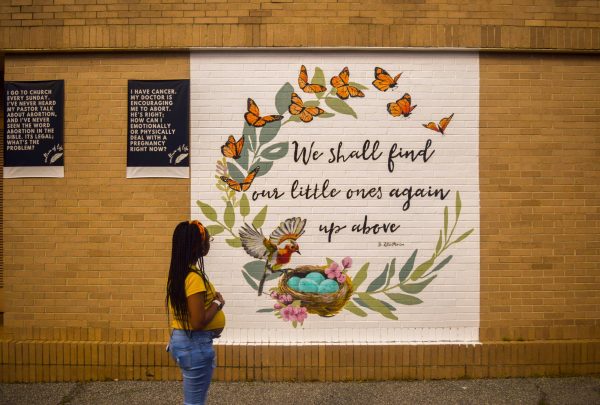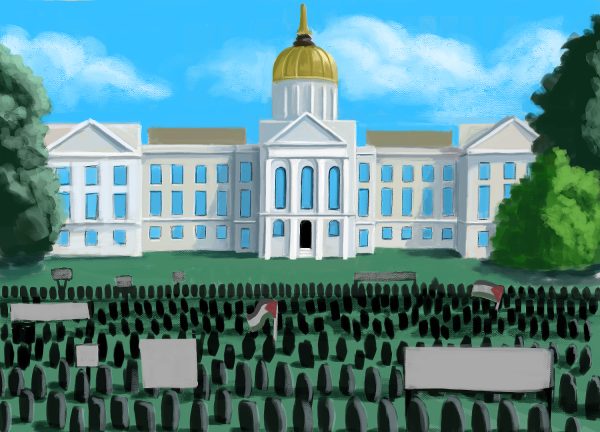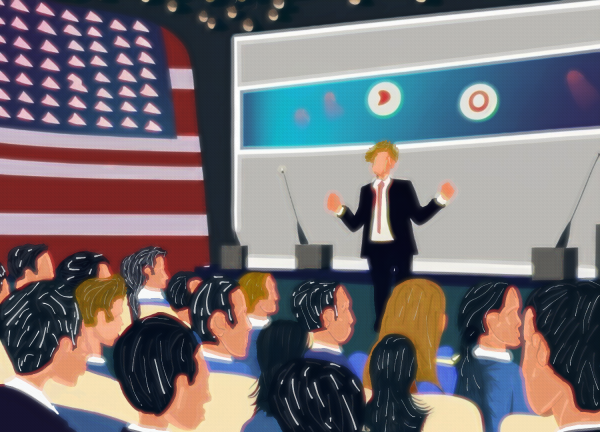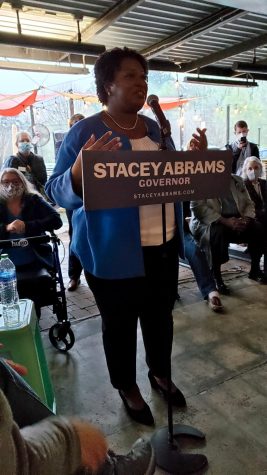Art as Protest
Fusing creativity and civic participation
Professor Natalia Temesgen of CSU’s English department and her Intro to Playwriting students held “Sidewalk Art: Art as Protest” downtown Thursday, Oct. 4. The group aimed to attract attention to issues the students saw in the world around them. It also aimed to attract attention to the importance of registering to vote and voting in elections, including the upcoming midterms Nov. 6, by using artwork, plays, and dance as forms of peaceful protest.
In 2014, adults aged 18-29 counted for 21 percent of the voting eligible population, but turnout at the polls has reached record lows in recent years, according to the Campus Vote Project.
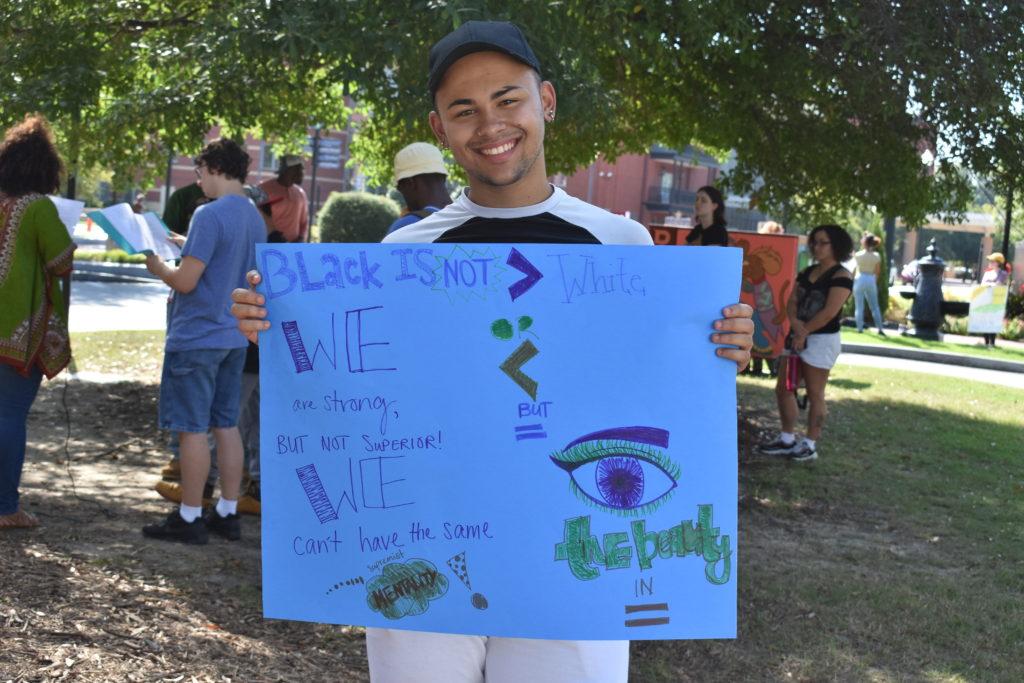
“Young people are the largest voting bloc in American politics, but we have yet to realize our power,” said David Smith, a political science major at CSU. “If we want to secure our future and our rights, whether we are talking about combating climate change or protecting civil rights, we are going to have to be the generation that stands up and takes action.”
Two short plays were read aloud in the median on Broadway near the CSU bookstore and Fountain City Coffee downtown. Temesgen asked her Intro to Playwriting class to write plays addressing an issue they’d observed in their world, local or beyond. The first, Yvonne Marshall’s “Burning Love,” centered on the dangers of smoking and its effects beyond the individual smoker, and the second, Cole Kiker’s “Bitter Barriers,” focused on gentrification and eminent domain as the characters are evicted from their property by the government.
Temesgen voiced the purpose of the event in-between activities by encouraging others to participate, encouraging them to ask questions, and helping them register to vote. Smith and others stood near the crosswalk, opening conversations with bystanders and asking if they were registered to vote.
“Politicians listen to those who vote. So we need to become the generation that votes. I get the news isn’t the most fun thing in the world to listen to or deal with, but you need to stay informed,” said Smith about the importance of voting. “You need to research candidates. Read up on policy. It is one of the most important things we can do to safeguard our democracy.”
Students held protest posters designed by Temesgen’s Selected Topics in African American Literature class, displaying them for the passing cars on Broadway. Each poster had a theme, ranging from women’s health and toxic masculinity to representation and acceptance of those who identify as LGBTQ and beyond.
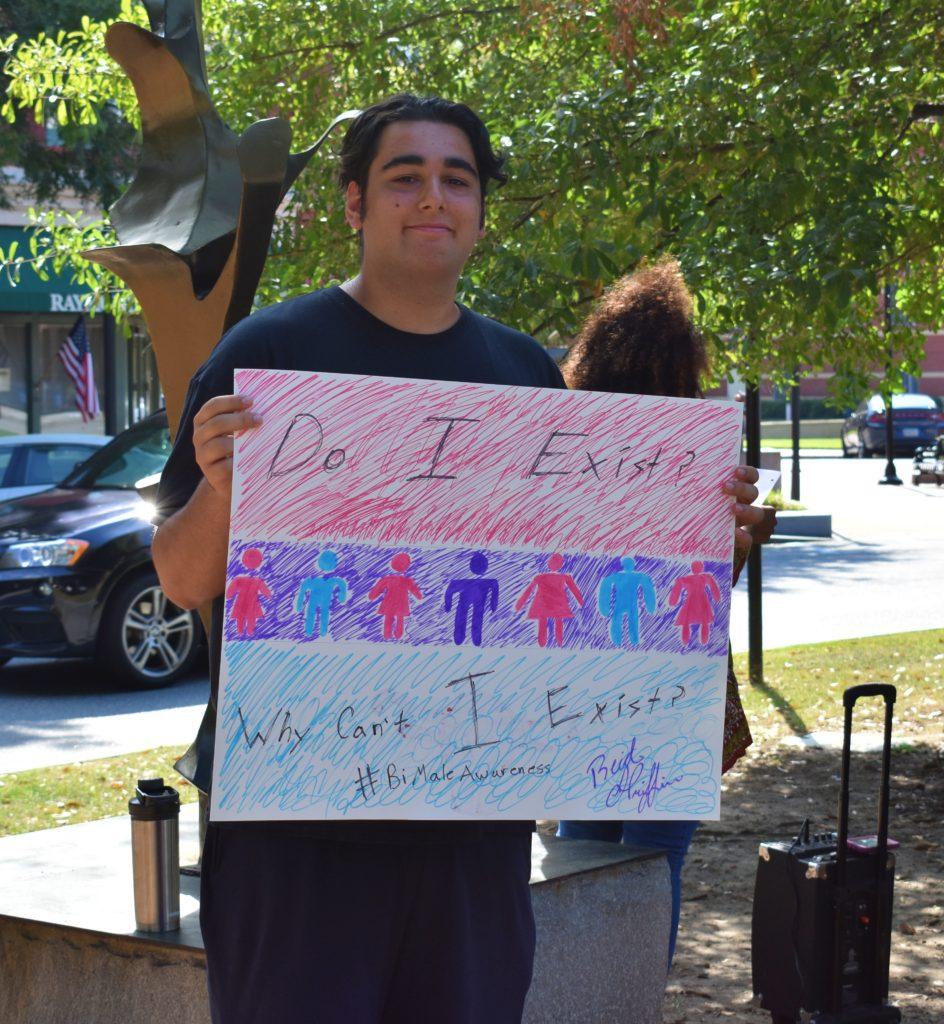
“Protesting comes in so many forms,” Temesgen said. “Isn’t it better to actually address the things we wish would change rather than hum and haw and just move along bitterly? Democracy is a long game, and we are always invited to play.”
Twice during the event, Temesgen and her students performed as a flash mob.
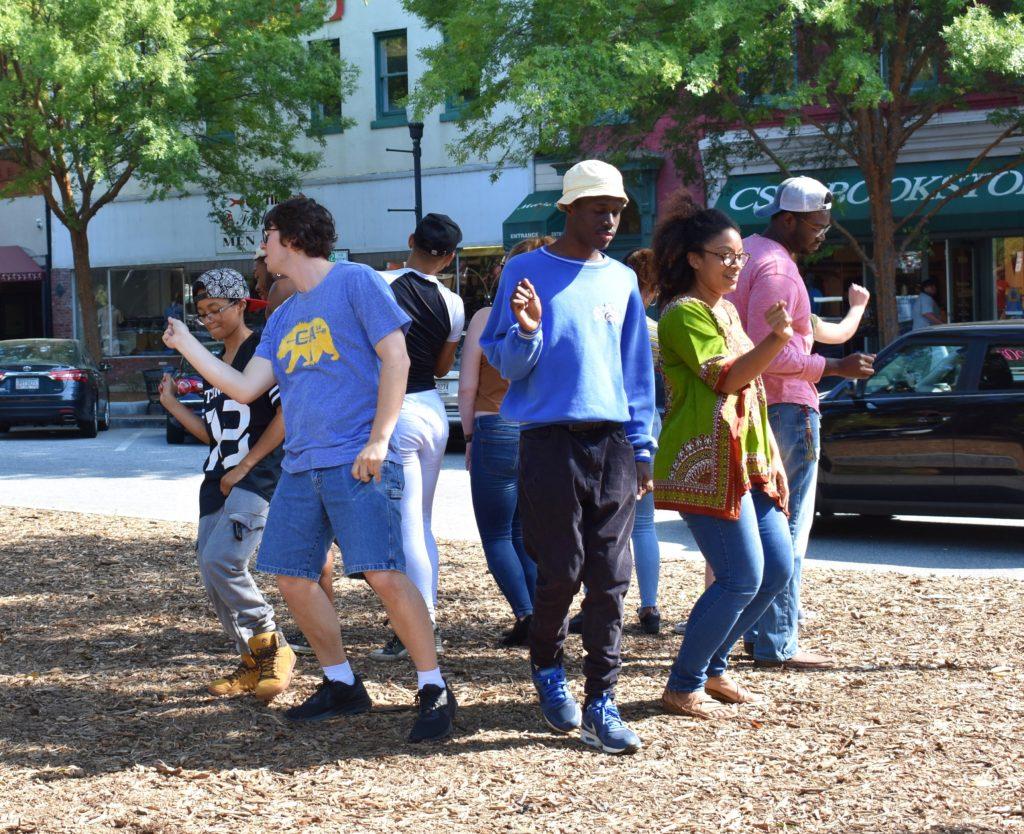
“We broke out into fun and goofy dance moves in the middle of Broadway during the lunch hour and encouraged people to “Smile” (thanks Lil Duval!) as well as vote,” Temesgen said. “That was art as protest. And it was powerful.”
- Check your registration status here: https://www.vote.org/am-i-registered-to-vote/
- Check your state’s registration deadline here: https://www.vote.org/voter-registration-deadlines/
- For information on absentee ballot request and other absentee ballot deadlines: https://www.vote.org/absentee-ballot-deadlines/
- To request an absentee ballot for Georgia via the Secretary of State website: http://sos.ga.gov/index.php/Elections/absentee_voting_in_georgia
- For information on your states’ absentee ballot request procedure, visit your state’s Secretary of State website.
